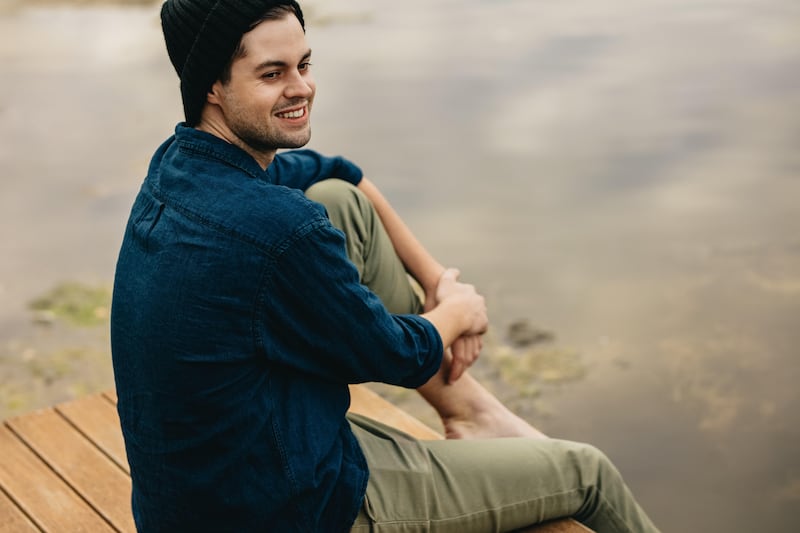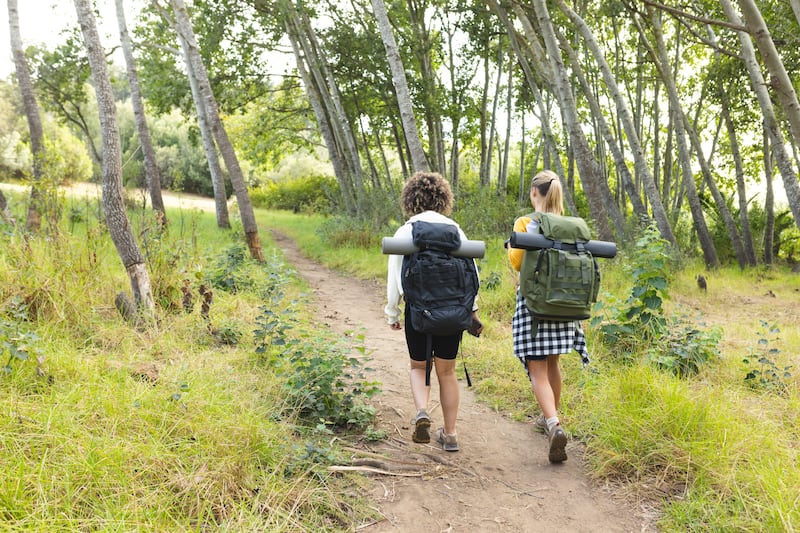What is TikTok’s ‘soft travel’ trend and why is it becoming so popular?
4 min readIf you haven’t heard of the ‘soft travel’ trend yet, chances are you’ll spot it soon.
It taps into a lot of social media’s ‘soft life’ vibes – which originated in Nigeria and was popularised by African-American women long before it made its mark on TikTok, with #softlife racking up 228.5k posts and counting – where leaning into a less stressful, more enriched life is the goal.
But what does soft travel really mean, and why is it becoming popular?
A break should feel like a break
“Soft travel focuses on taking it easy,” says travel expert Justin Chapman from Go2Africa. “It’s rising in popularity as more and more people realise it’s ok to take a real break.

“By listening to your body and mind, you can rest when you need to, rather than rushing around tourist spots because you feel you have to be busy at all times to make the most of your holiday, or spending ages trying to get the perfect shot for social media.”
Adam Schwab, co-founder and CEO of Luxury Escapes, adds: “Rather than rushing from attraction to attraction, soft travellers are savouring simple pleasures – strolling leisurely through charming neighbourhoods without an agenda, getting lost in local shops, or relaxing at cafes with a good book and coffee.
“This trend is resonating with many people, especially city dwellers, because it helps to appease burnout from the over-scheduled, bucket-list-chasing style of travel that many people are tired of. Instead, people are craving authentic, immersive experiences that let them live like locals for a while and be present in the moment.”
Going back to simpler times
There was a time when the goal of any holiday was simple: to relax and unwind. Does soft travel take us back to this?
“Soft travel is about simply making a conscious effort to slow down and relax when on holiday. Travelling is traditionally associated with a fast-paced, on-the-go mentality, however this trend encourages you to reconnect with nature and prioritise wellbeing,” says Simon Lynch, global sales and product director at luxury tour operator Scott Dunn. “With everyday life more hectic than ever, travellers are considering which areas of their life they can take at a slower pace, and it seems holidays can do just that.”
Is it a bit like slow travel?
There are crossovers with slow travel, which is all about slowing down, taking a green approach and being more mindful. But Chapman says: “Soft travel is a more achievable take on slow travel. Most people don’t have the time or resources to immerse themselves in a new country and culture for months at a time; soft travel gives all the benefits of a cultural experience and true rest, but on a smaller scale.”
Seeking a deeper experience
Lee Dobson, co-owner of Travel City, says: “The rise in soft travel can be linked to a wider interest in mindfulness and looking after the environment. People are looking for deeper, more meaningful travel experiences that also consider the planet’s wellbeing.”

Michele Massa, travel expert and CEO of Ibiza Summer Villas, agrees there’s a big environmental element. “Soft travel aims to counter the classic problems with exploitative tourism. It encourages people to stay in one place for longer periods – opposite to the classic digital nomad lifestyle, and embrace local customs, support local businesses, and make more environmentally sustainable decisions,” Massa explains.
“While it may sound like a lot of extra planning could be required, the point of soft travel is to make our lives easier when travelling. If we’re staying locally for longer periods, we will also be more likely to use things like biking, walking or public transport for getting around, which naturally reduces our carbon emissions.”
How can you tap into the trend?
Schwab suggests: “Focus on booking accommodation that is off the beaten tourist path and enables you to immerse yourself in the local culture. And most importantly, resist the urge to over-schedule – leave plenty of unstructured time in your itinerary for wandering without a plan and soaking up the real vibe of the area.”
For Lynch, it’s about how you plan your trips and your mindset while there.
“Slowing down is a big part of it, with less demand for frantic schedules, and instead taking a slower, more laissez-faire attitude to holidaying. This may involve taking the more scenic route, as opposed to the most direct – prioritising nature over speed,” says Lynch.
“However, it is also slowing your pace mentally. Taking time to immerse yourself in your surroundings, interacting and enjoying beautiful new views, cultures, buildings or nature. You can still be adventurous, but instead of feeling pressures and demands of being on the go all the time, you’ll enjoy the journey of activities and not rush through them.”




